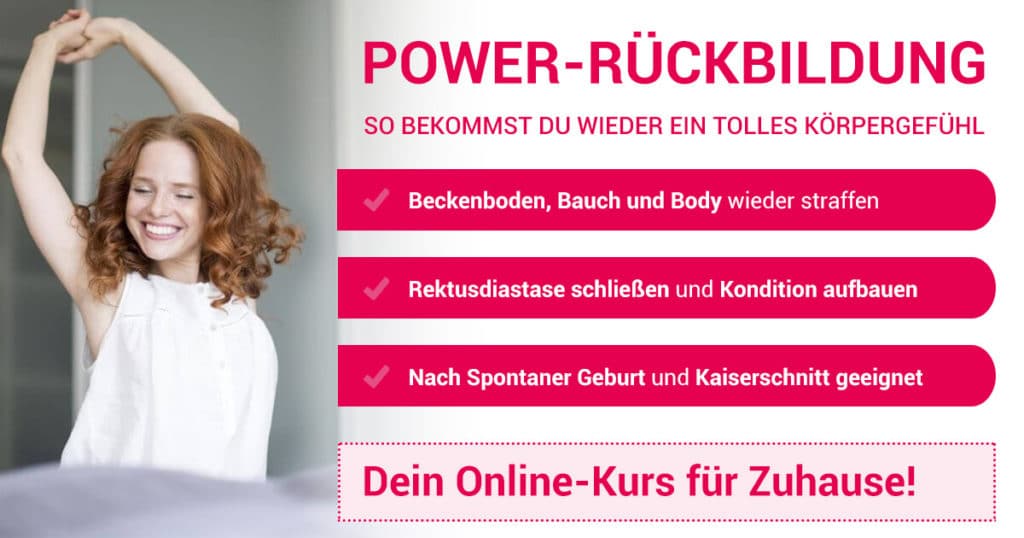What is actually the most beautiful time in life can quickly turn into a nightmare due to postpartum depression. Many mothers are affected by baby blues and postnatal depression.
Find out where the sadness after birth comes from, how the symptoms manifest themselves and where you can get help as an affected person!
Anxiety Factor Postpartum Depression – The Emotional Low After Birth
Postpartum depression can affect any mother! It doesn’t matter whether it’s your first baby or your fourth, whether you’re a single parent or in a happy relationship, whether it’s your dream child or an unexpected pregnancy.
In the first days after birth, up to 50% of all mothers develop the typical symptoms. The so-called baby blues, which soon pass, can also develop into severe postnatal depression.
- Also interesting:
- The best mopping robots
- Recommended diaper pails
- The best diaper changing pads
This affects between 10 and 15% of all mothers.
What often went unnoticed in the past is fortunately no longer a taboo subject today. More and more doctors, midwives, nurses and even the affected mothers themselves are educating people about postpartum depression.
And even stars like Gwyneth Paltrow and Serena Williams speak openly about the difficult time after the birth of their children.
But where do the baby blues and postnatal depression actually come from? Why does it occur and what can be done about it? How do you recognize the first signs of postpartum depression in yourself?
And did you know that even fathers can be affected?

Table of contents
Postpartum Depression: The Facts Behind The Baby Blues
In medicine and psychology, a very clear distinction is made between two different types of depression that can occur after childbirth.
- A short-term postpartum depression, the typical baby blues.
- The postnatal depression, often also called postpartum depression, which is recognized as a clinical picture.
In very rare cases, postpartum depression can also develop into psychosis.
Among expectant mothers and all those interested, there is always confusion about the exact meaning and delimitation of the various terms.
The exact knowledge of the different symptoms is important in order to recognize if and when you need help after the birth of your child. Therefore, dealing with this topic should be part of your preparation for health during pregnancy.
This way you will be able to recognize all the signs of depression in case of emergency.
The Baby Blues
Short-term postpartum depression is not depression in the true sense of the word and is therefore not recognized by doctors as a disease in its own right.
Rather, it refers to a short phase after birth in which the young mother suffers from severe emotional instability. The baby blues occur in the first few days with the child and disappear again similarly quickly and all by themselves.
Therefore, postpartum depression does not need to be treated with medication or therapy.
The symptoms for baby blues are:
- Severe mood swings
- The feeling of having to cry all the time.
- Feeling sad
- Feelings of guilt
Postnatal Depression – The Clinical Picture
Postnatal depression is a severe postpartum depression that can last up to a year. It is an independent clinical picture and can also appear months after birth.
Postnatal depression can and should be treated with professional help.
Some symptoms of postnatal depression include:
- Irritability
- Sleep disturbances
- Loss of appetite
- Difficulty concentrating
- Feelings of guilt
- Suicidal thoughts
Postpartum Psychosis
Postpartum psychosis affects less than one percent of all women after childbirth. It can occur directly or develop over the longer term from postnatal depression.
Postpartum psychosis is a disorder in its own right and is the most severe of all mental illnesses that can affect a new mother.
Medical treatment, usually as a prolonged stay in a psychiatric unit, is absolutely necessary and should be initiated as soon as the first signs are recognized.
The symptoms of postpartum psychosis are:
- Hallucinations
- Delusions
- Danger of harming the baby

Pregnancy Depression
It is possible for the typical symptoms of depression to appear before the baby is born. The so-called pregnancy depression, also called antepartum depression, affects about 10% of all expectant mothers.
Here, too, the symptoms are mainly sadness, insomnia, concentration problems and irritability. If the depressive phase does not seem to pass, you should definitely talk to your gynecologist about it.
Where Do The Baby Blues Come From?
According to current research, the short-term, harmless variant of postpartum depression is a consequence of the hormonal changes in the body after birth.
One sign of this is the fact that the mildest form of postpartum depression usually begins 2 to 3 days after birth. That is, exactly at any time when hormone levels are most in turmoil.
This makes baby blues comparable to the mood swings that can occur before or during menstruation.
The rapid change in life circumstances during the first few days as a new mom, as well as the acute lack of sleep, intensify the symptoms.
The baby blues can take some of the joy out of the first few days together.
However, feelings of guilt are in no way appropriate. Talk openly about your feelings with your partner, your family and possibly your midwife, and know that many women around the world feel the same way you do.
Why Does Postnatal Depression Occur?
The causes of postnatal depression are more diverse than those of baby blues and have not yet been fully researched.
Experts believe that in addition to hormonal changes, traumatic childbirth can also have an impact on a mother’s mental health. Experiences such as an emergency C-section can throw a woman off track.
In addition, problems in the new daily routine are thought to promote postnatal depression. These include:
- Financial problems
- Marital problems
- Conflicts in the family
- Deaths in the family
- Loss of employment
While all of these negative elements promote postpartum depression, it also occurs in financially secure women who are happy in their relationship and who have had a regular, non-traumatic birth.
If you’ve ever dealt with depression or another mental illness before pregnancy, your risk of postnatal depression also increases.
Help Wanted Treating And Conquering Postpartum Depression
Diagnosing postpartum depression can be difficult.
If it does not occur until two to three months after birth, there is no longer any contact with midwives or hospital staff who could become aware of the problem.
The stress of the new daily routine with the baby can prevent even well-adjusted couples from noticing the change in their partner. In addition, many women are ashamed of not feeling joy in being a mother and try to hide their feelings from those around them.
As soon as you recognize the symptoms of postpartum depression in yourself or even have doubts whether you might be suffering from postnatal depression, you should definitely not look before seeking professional help.
The first place to go is your gynecologist. They will have an initial discussion with you about postnatal depression and refer you to a psychotherapist if necessary.
There, too, every treatment begins with a conversation. For women with only mild symptoms of postpartum depression, a few sessions of conversation are already sufficient to overcome the condition.
In more severe cases, medication and/or longer psychotherapy are used for treatment.
Measures To Prevent Postpartum Depression
Even though postnatal depression can affect any woman, there are still some means to minimize the risk and ensure that the classic baby blues do not turn into a serious depression.
Optimize Sleep Rhythm
Together with your partner and your family, find ways to get as much sleep as possible, even as a new mother. For example, a fixed afternoon nap while grandma takes the baby for a walk.
Build A Family Network
Enlist grandma, grandpa, aunts and friends to support you. Not only is this important relief, daily social contact prevents loneliness and isolation.Communicate with Partne.
Talk openly with your partner from the first sign of sadness.
Baby Blues In Men: When Fathers Suffer
Much less known is the baby blues, which can appear in new fathers. Experts believe that around 5% of all men experience a brief period of psychological distress after the birth of their child.
The reasons differ somewhat from those of mothers, as hormonal effects play a lesser role – even though studies have found that a new baby in the household can also end the father’s hormone levels.
Rather, however, the male baby blues occur as a side effect to the new stress, challenge and responsibility. Lack of sleep also has a negative impact on men’s state of mind.
If you suffer from postpartum depression, then the risk of your partner developing symptoms also increases. This creates a difficult situation for the whole family.
In addition to birth preparation for men, open, honest communication between you and the expectant father before, during and after pregnancy is an important tool to prevent depression.
Especially if your partner is one of those men who finds it harder to talk about feelings, you should talk often and keep an eye on his state of mind.
Postpartum Depression? You Are Not Alone!
Education and the quick acceptance of external help will ensure that the postnatal depression will pass and that you, your partnership and your baby will be able to enjoy the future together unscathed.
As a sufferer of severe depression, attending a support group can also be very helpful.
Together with other mothers in the same situation, you get the important feeling that you are not alone with your worries and problems.










